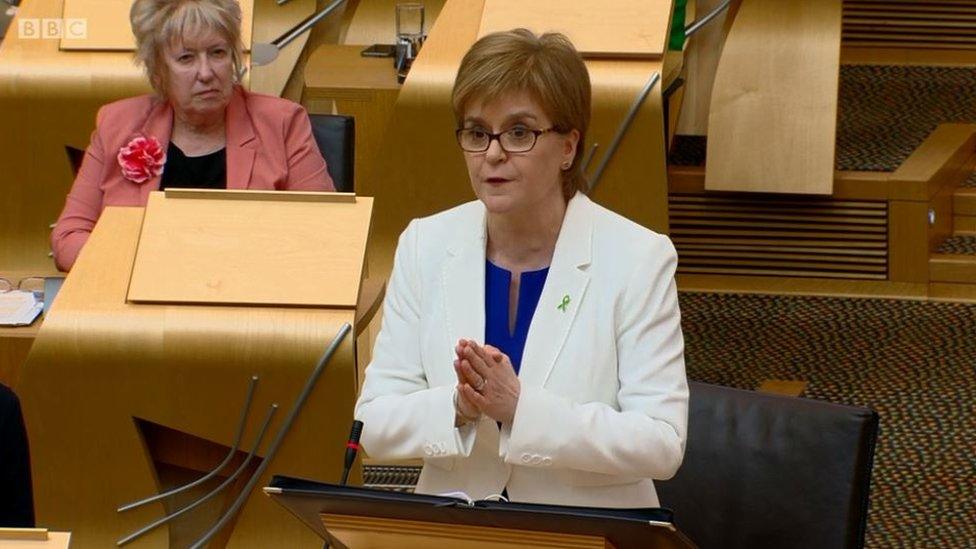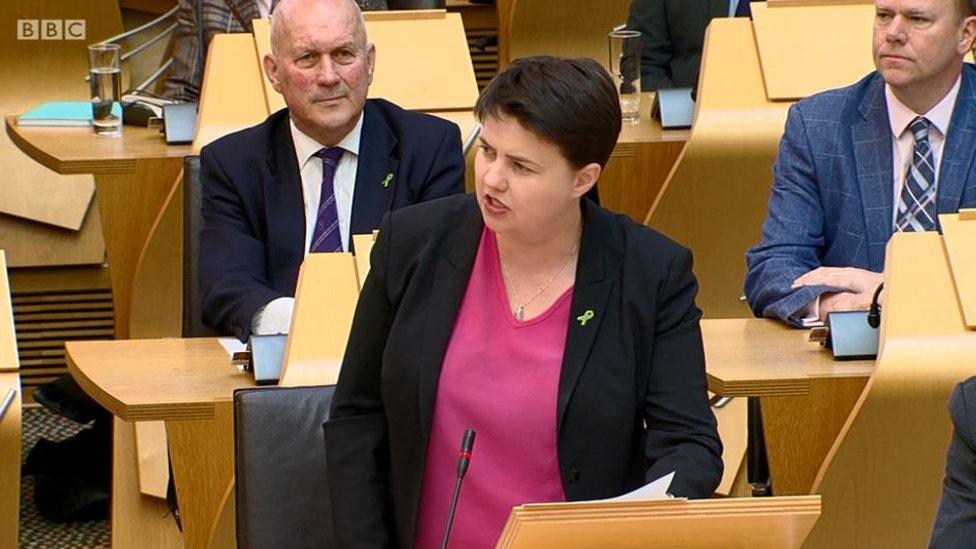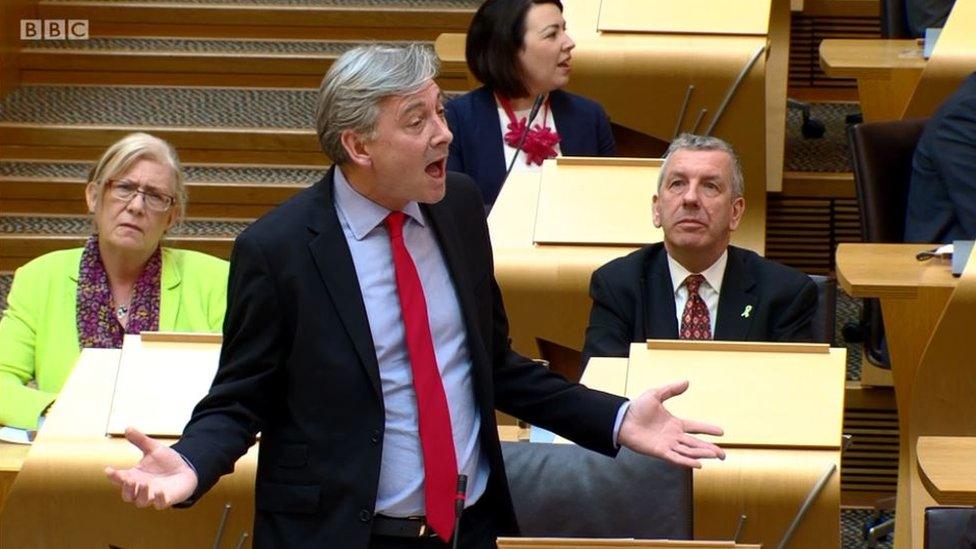FMQs: friends forgiven, opponents less so
- Published

Never let it be said that Nicola Sturgeon is not a forgiving person. There she was in the parliamentary canteen, sharing a cheerful, chatty bite with Noel Dolan.
Surely you remember? Noel Dolan? Her former special adviser, now retired, who generated (slightly) tricky questions for his erstwhile boss by endorsing a second referendum on Brexit.
Was she taking the chance to clutch him warmly by the throat? Chums, she was not. She was affability personified. Noel, a former BBC colleague of mine, was his customary self, a blend of mellow diffidence and charming bonhomie.
However, it would appear that this forgiving nature on the part of the FM does not extend, entirely understandably, to her political opponents.
Challenged by Ruth Davidson on the topic of education, Ms Sturgeon saw an opportunity and pounced. Thus generating prolonged grumbling from the Tory benches which required the intervention of the presiding officer to quell.
Let me explain. You'll recall that Peter Chapman resigned as Conservative spokesman on rural affairs last night. It was revealed that he had lobbied for a planning application anent the Inverurie mart when he held shares in the group running the venture.
Although he stood to make no financial gain, he acknowledged this was an unwise clash of interests - and so he quit. No doubt encouraged by Ms Davidson, his leader.
In the chamber today, said Davidson, R was in combative mood. She was arguing that subject choice in Scottish secondary schools was severely restricted, most notably in deprived areas. It was, she said, "a scandal".

Ms Sturgeon saw her chance. Rising slowly but with purpose, she suggested that there was indeed a scandal on the go at Holyrood, one generated from the Tory benches. A few rows behind Ms Davidson, Peter Chapman looked wanly sheepish, as befits his farming background.
Cue loud Tory protests. Ms Sturgeon declined to apologise in any way. "I seem to have touched a nerve", she chortled, mischievously.
The substantive exchanges were notably heated. Ms Davidson asked one question, about choice. Ms Sturgeon answered another question, about outcomes. Jackson Carlaw, the Tory deputy, sat observing both, open-mouthed and aghast.
Mental health
Both Richard Leonard, for Labour, and Willie Rennie, for the Liberal Democrats, pursued various aspects of mental health care. Each, in his own way, effective.
Ms Sturgeon answered with notable caution. Mr Rennie has made this topic his speciality. Mr Leonard recently pursued the government with evident effect over mental health provision on Tayside.
At the opening of the exchanges with the Labour leader, it seemed he might be discomfited. He demanded to know when a review of rejected referrals would be published, plainly implying it had been neglected by Ministers. The answer from the FM? End of next month.
Was Mr Leonard deflated? Friends, he was not. After only a moment's pause, he rallied to challenge the FM again.

These questions work. At the very minimum, they oblige the first minister to revisit the topic among her many, many responsibilities. They may well prompt her to challenge colleagues or officials as to their actions.
The same can be said of the questions posed by Patrick Harvie, for the Greens, about the provision of new-build housing.
Parliament will have a key role in another controversy, also raised today. The issue of whether prisoners should be given the opportunity to vote, in accordance with the European Convention on Human Rights.
Holyrood's Equalities and Human Rights committee came out for enfranchisement. Ms Sturgeon defended their right to do so - and praised their efforts - before dissenting firmly from their findings.
The FM seemed decidedly unhappy with the concept of ballot boxes in the Bar-L. She could not accept, she told the chamber, that any franchise should be universal. Would it, for example, include those convicted of the "most serious and heinous crimes"?
On the one hand, we heard from Murdo Fraser, reflecting the views of a father whose son was murdered. Giving the vote to his killer would, said Mr Fraser, be "an obscenity".
But Parliament also heard from John Finnie of the Greens - a former police officer - who argued that the democratic franchise was a fundamental human right, not a reward.
In the middle, the first minister urged a calm, thoughtful response, while plainly stating her own disquiet. Was she being "naïve", she wondered aloud, in hoping for mature debate? Surely not. Surely not.